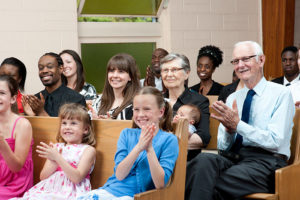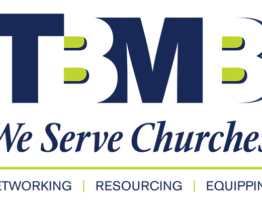 Imagine the scene as the Farr family arrives at church. Mr. Farr goes to a men’s Sunday school class on the third floor of the building. Mrs. Farr says, “I’ll meet you in the worship center after Sunday school” and turns down the preschool hallway, where she teaches a class of 3-year-olds. Molly, 14, heads to the second floor for the youth class, and Joseph, the third-grade son, runs in a different direction for his class. And this is a church that promotes itself as being a family-friendly church.
Imagine the scene as the Farr family arrives at church. Mr. Farr goes to a men’s Sunday school class on the third floor of the building. Mrs. Farr says, “I’ll meet you in the worship center after Sunday school” and turns down the preschool hallway, where she teaches a class of 3-year-olds. Molly, 14, heads to the second floor for the youth class, and Joseph, the third-grade son, runs in a different direction for his class. And this is a church that promotes itself as being a family-friendly church.
Churches must seek to minister to families as families — not just as individuals who ride to church in the same car.
Here are 15 steps your congregation can take to become a family-friendly church:
— Commit to keeping the family a priority.
— Give high priority to needs of preschool, children, and youth in the church budget. This should include resources for curriculum, age-appropriate space and furnishings that are inviting and clean, consumable and reusable resources, as well as age-group staffing.
— Develop appropriate ministry teams or committees to lead the age-graded ministries and establish policies and guidelines for all activities.
— Determine the most effective ways to communicate policies, guidelines and ministry information to parents and the whole church family.
— Enlist, background check, train and equip qualified volunteers to understand the needs of each age-group and commit to regularly plan, prepare and teach.
— Provide attractive signage for ease in locating classrooms.
— Designate parking near appropriate entrances for expectant parents, parents of infants, parents with more than one child, single parents, senior adults and handicapped individuals.
— Provide men’s and women’s restrooms with diaper-changing stations and clearly mark them. Designate a “family restroom” and provide a mother’s nursing room near the preschool area.
— Involve families in worship service through greeting, distributing worship guides, receiving offerings, Scripture reading, prayer and announcements.
— Affirm and assist parents as they include preschoolers and children in corporate worship. Provide worship bags that include a Bible, children’s worship bulletins, a small bag of quiet activities, a few crayons, drawing paper and stickers.
— Plan for family members with disabilities and special needs by providing ease of access for wheelchairs and other special needs devices, extra leaders and opportunities to mainstream the individual with his age-group whenever possible.
— Plan activities that allow families to participate together: worship, occasional intergenerational Bible study (maybe on holidays), family meals, fellowship activities (picnics and game nights), mission projects (such as sorting clothes for a crisis ministry or delivering food baskets to homebound church members).
— Plan Children’s Sunday and Youth Sunday as annual events. Celebrate children and youth. Celebrate families. Celebrate leaders of children and youth.
— Respond to opportunities to partner with area schools or other organizations that relate to children or youth.
— Designate and protect specific dates for the family. No church meetings or activities should be scheduled on these dates.
When parents see that family is a high priority for a church, they begin to envision that church as a place where their family members can learn, worship, serve and laugh together. We help them grow closer to God and to each other.
Vicki Hulsey is a childhood ministry specialist with the Tennessee Baptist Convention. To connect with Vicki about these and other ideas, email her at vhulsey@tnbaptist.org.








